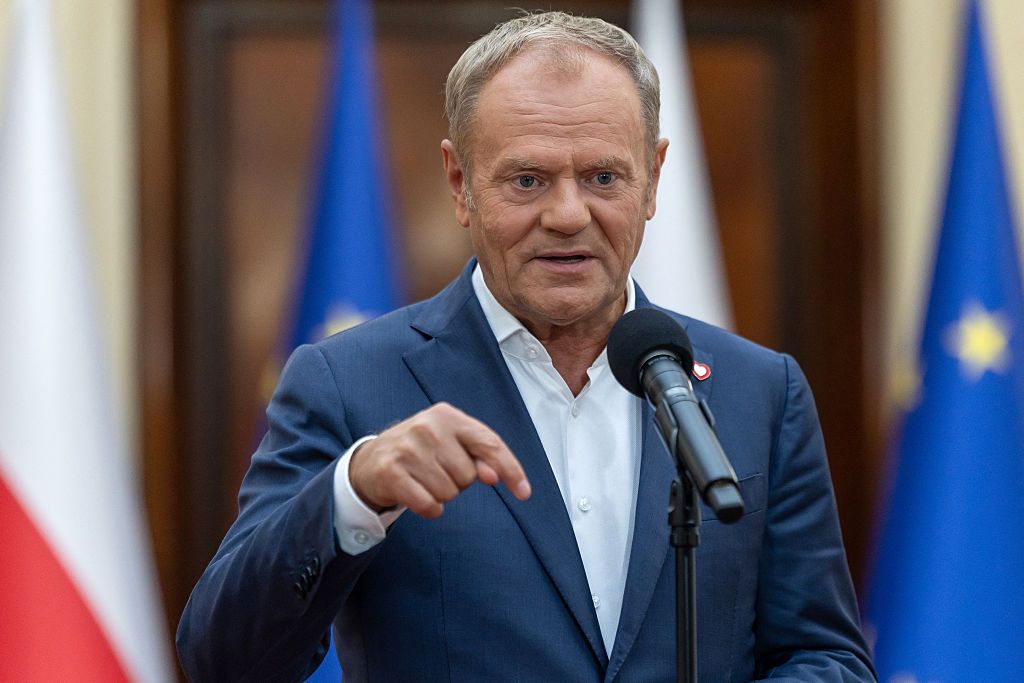Germany Must Rearm
No self-respecting great power should be in the position where Berlin is now.

“Germany has been periodically mature and powerful—but never together”, a German diplomat told me over a quick dinner in Washington, DC, which is hauntingly beautiful on an autumn Friday night, with most people leaving town after work. It is a bitter reflection, made with an implicit sigh of repressed anger. A Polish court ruled in the morning that the Ukrainian man allegedly responsible for blowing up the Nord Stream pipeline will not be extradited to Germany. As the noted scholar and sage of “rules-based order,” Thucydides, once wrote: The weak suffer what they must.
“If Ukraine and its special forces, including the suspect, organised an armed mission to destroy enemy pipelines, these actions were not unlawful. On the contrary, they were justified, rational, and just,” the court ruled. The judge added, “The German nation was from our point of view hostile towards Ukraine as it was cofinancing the enemy—Russia.” One of course marvels at the pretzel logic, while also appreciating that, in a classic fashion, this is a sovereign judgement and ruling from a “court” in the original sense of the term.
International law is anything but customary and is almost always inevitably subservient to the balance and distribution of power. If there’s anything that is a lesson from this sorry episode, it is that the Germans, failing to act in a mature way, have now lost all real power as well as respect in Europe.
Consider, from Poland’s Prime Minister Donald Tusk: “Polish court denied extradition to Germany of a Ukrainian national suspected of blowing up Nord Stream 2 and released him from custody. And rightly so. The case is closed.” The finality is palpable. Or from Vice Premier Radek Sikorski: “When a foreign aggressor is bombing your country you may legitimately strike back by sabotaging the aggressor’s ability to finance the war. It is called self-defence.”
It doesn’t take a genius to question the logical ends of those assertions. Poland, Germany, and NATO are not officially at war with anyone, much less with Russia. Is the destruction of sovereign financial assets by an agent of a third party in open seas an attack on sovereignty, or is it not? Is an Ukrainian agent destroying a sovereign property of a NATO member country, an attack on NATO? Can Germany seek Article 5 consultation? Given that the European Union still buys Russian energy, will Germany conduct such an operation on Polish soil in future under any pretext? If Poland buys any Chinese goods, no matter how small, can the U.S. harbor German agents who destroy Polish property? Will any other power, not just the U.S. or China, but Turkey or India, allow this to happen to their sovereign financial assets? If the rules-based order is harboring agents blowing up sovereign financial assets, the bill must come due someday.
But what does Tusk’s “rightly so” imply? Poland’s primary opposition to Nord Stream wasn’t because it is Russian energy or that it profits the Russian war machine—Poland continued to benefit from Russian gas even after the war broke out, and it has been reported that they did not stop after Nord Stream was bombed. Poland’s objection was that the pipeline bypassed Poland.
Germany’s central desire towards institutionalizing peace on the continent suffers from the same predicaments and disadvantages as those of the reigning global hegemon, just on a smaller continental scale. The logic of a post-war European political union was to hide and in some ways temper both German financial hegemony and ethnic Pan-Germanism under obtuse, multi-layered rules and performative subservience: a legalist mix of Friedrich Naumann’s liberal central European empire and Richard von Kühlmann’s concept of “limited sovereignty.” Germany tried military hegemony twice and it never worked well for anyone, least of all for the Germans. It was as cursed by fate, too powerful and not mature enough. This time, it wanted to be a mature responsible power.
But the logic of power and empire dictates that you cannot be a vegetarian predator. America can perform subservience to the whims of EU and NATO occasionally to achieve long-term political alignments; the entire world still understands where the real power is. Germany, on the other hand, was the first country to disavow hard power since 1989, followed three and a half decades later by giving up nuclear energy independence. The result is a strange dynamic: Germany, the economic and manufacturing powerhouse of Europe, is surrounded by small protectorates with blood-animosity over distant past historic sins who simultaneously are egging on Germany to rearm, spend, and protect them, while harbouring fugitives who destroy sovereign German wealth.
And Germany has allowed itself to be chained this way. While “chain-ganging” is bad enough in foreign affairs, somehow it feels far worse and unnatural when it is accompanied by a small protectorate’s sanctimony.
Subscribe Today
Get daily emails in your inbox
This is clearly unsustainable. Germany must rearm. But even now, the Bundeskanzler is instinctively trying to square the circle to couch the need for German hard power, under the rules of the EU: Spending money is not enough; there needs to be a Europe-wide debt adjustment, a European stock exchange. But why? If Poland, the largest net beneficiary and recipient in terms of nominal figures, receiving the highest total amount of EU funding, can simply ramp up to spending 4 percent of GDP on defense, Germany can too. It certainly doesn’t need European affirmation; it simply needs to reverse domestic policies, cut regulations for foreign start-up investments, invest in nuclear energy, and return to mandatory conscription.
Germany already has friends in the current U.S. administration who are begging Berlin to return to a 1989 force posture. An American desire to “shift the burden” and encourage Germany to rearm rapidly, should, if not for anything, rectify this decades-old unnatural order in Europe.